Homemade Mosquito Repellents: Effective Solutions and Natural Plants
Mosquitoes can quickly turn a pleasant outdoor experience into a frustrating ordeal. Their bites not only cause itching and discomfort but can also transmit diseases. While commercial repellents are readily available, many people prefer natural alternatives when dealing with bugs. This article explores effective homemade mosquito repellents and plants that can help keep these pesky insects at bay.
In truth, mosquitoes are more than just a nuisance. Their bites can spread diseases like malaria, dengue fever, and Zika virus. Natural repellents offer a safe and eco-friendly way to protect yourself and your family from these unwanted pests.
Using homemade solutions and plants for mosquito control has several advantages. They’re often less expensive than commercial products, free from harsh chemicals, and can be customized to your preferences. Many natural repellents also have pleasant scents and additional benefits for your skin and garden.
Seven Effective Homemade Mosquito Repellents
Let’s explore some easy-to-make repellents using common household ingredients and essential oils.
1. Coconut Oil and Peppermint
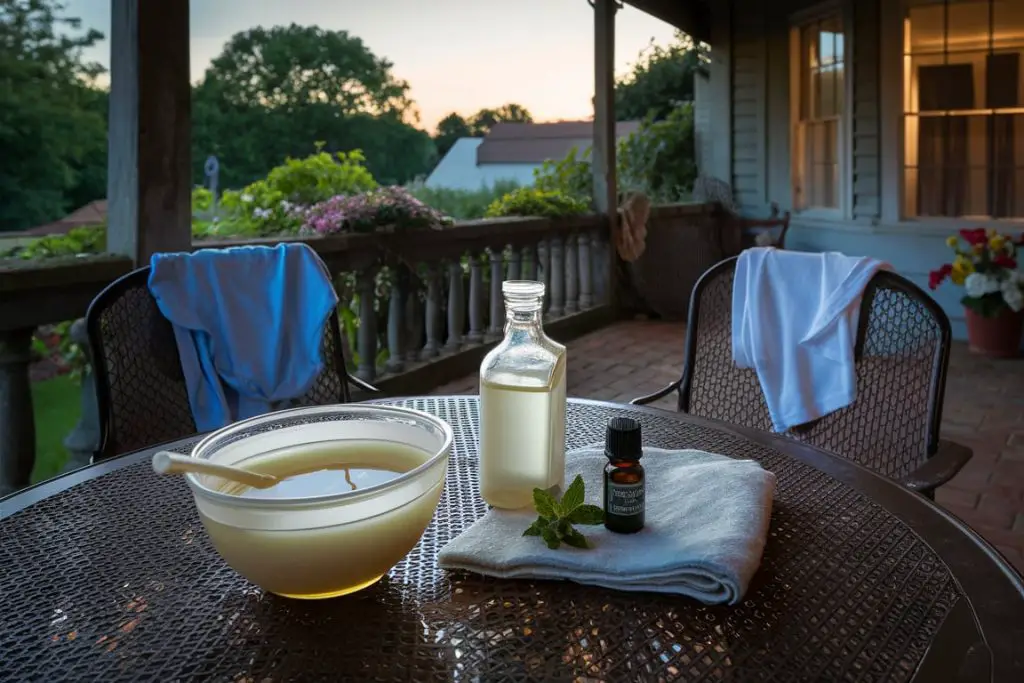
Coconut oil mixed with peppermint essential oil creates a powerful and pleasant-smelling mosquito repellent. The combination offers both protection and skin benefits.
To make this repellent, mix 1/4 cup of coconut oil with 15-20 drops of peppermint essential oil. Apply the mixture to exposed skin before heading outdoors. The coconut oil acts as a carrier, allowing the peppermint oil to last longer on your skin.
This blend moisturizes your skin while keeping mosquitoes away. The strong scent of peppermint masks the human odors that attract mosquitoes, making you less appealing to these biting insects.
2. Witch Hazel
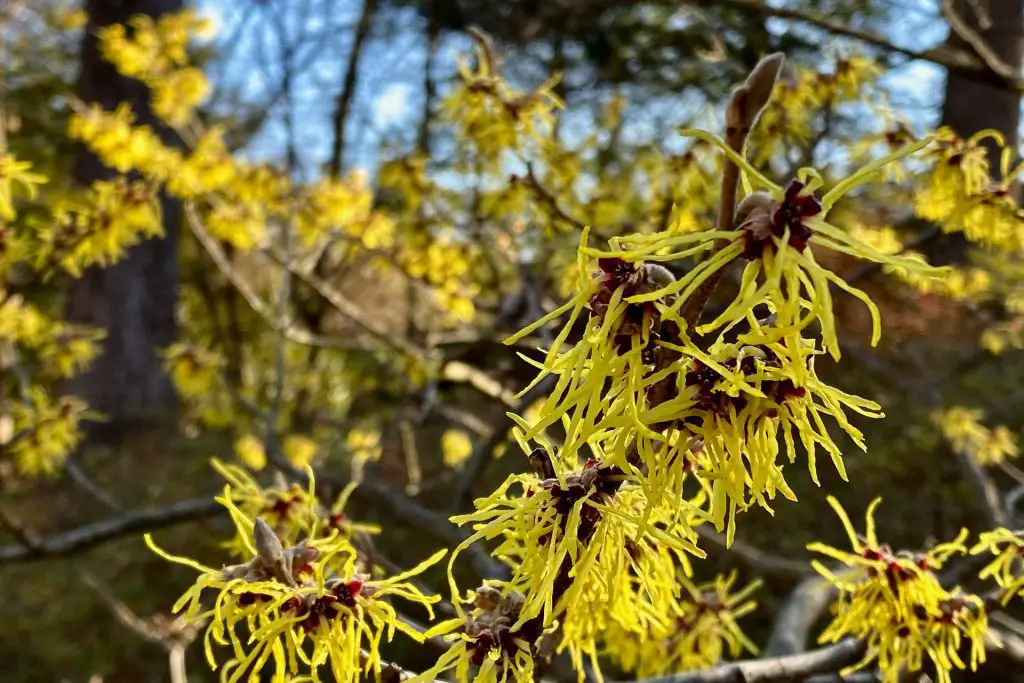
Witch hazel, a natural astringent, serves as an excellent base for homemade mosquito repellents. Combining it with essential oils enhances its effectiveness.
Mix 1/4 cup of witch hazel with 15-20 drops of lavender or citronella essential oil. Pour the mixture into a spray bottle for easy application. Shake well before each use and spray on exposed skin and clothing.
Witch hazel is gentle on the skin and helps the essential oils adhere better. Lavender and citronella are both known for their mosquito-repelling properties, making this blend doubly effective.
3. Apple Cider Vinegar
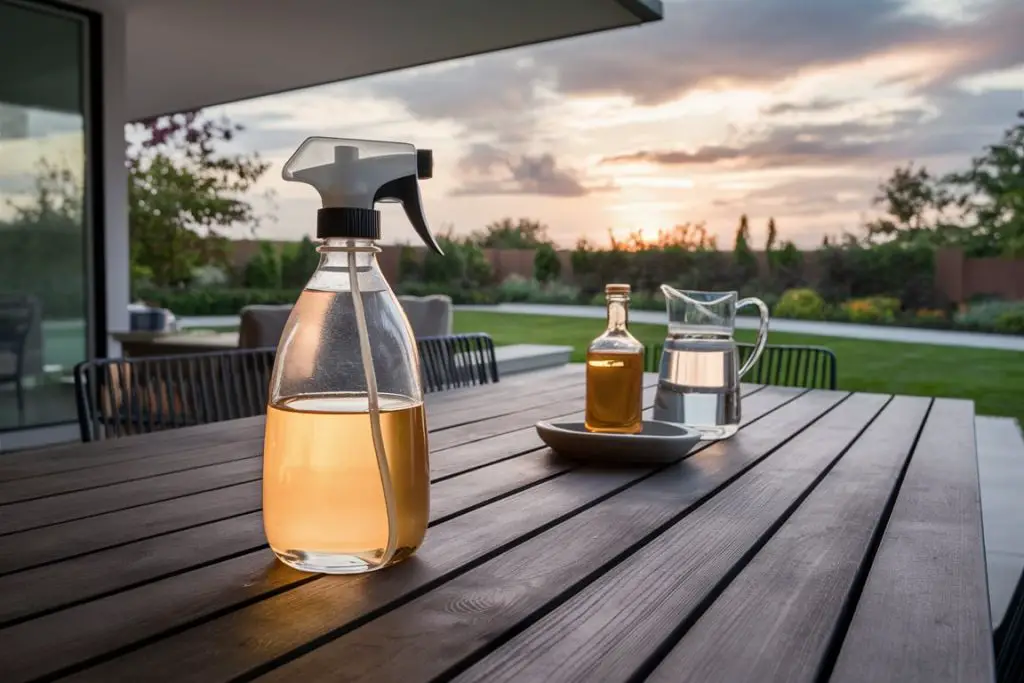
Apple cider vinegar might seem like an unlikely mosquito repellent, but when combined with the right essential oils, it becomes a potent deterrent.
Mix equal parts apple cider vinegar and water in a spray bottle. Add 15-20 drops of citronella or eucalyptus essential oil per cup of liquid. Shake well and apply to skin and clothing before going outdoors.
The acidity of apple cider vinegar helps balance skin pH, which can make you less attractive to mosquitoes. The strong scents of citronella or eucalyptus mask human odors, further reducing mosquito attraction.
4. Isopropyl Alcohol
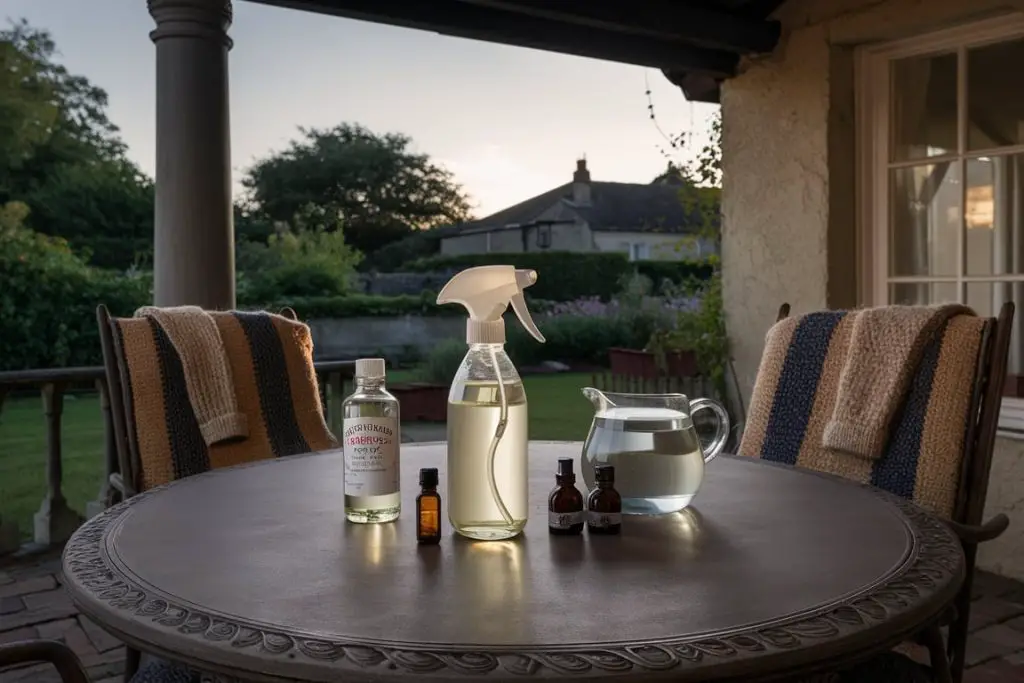
Isopropyl alcohol makes an effective base for mosquito repellents due to its quick-drying properties. When combined with potent essential oils, it creates a long-lasting barrier against mosquitoes.
Mix 1 cup of isopropyl alcohol with 1 cup of water and 30-40 drops of catnip essential oil. Pour into a spray bottle and apply to skin and clothing. The alcohol evaporates quickly, leaving behind the protective scent of catnip oil.
Catnip oil contains nepetalactone, a compound proven to be more effective at repelling mosquitoes than DEET in some studies. The quick-drying nature of the alcohol helps disperse the scent effectively.
5. White Vinegar
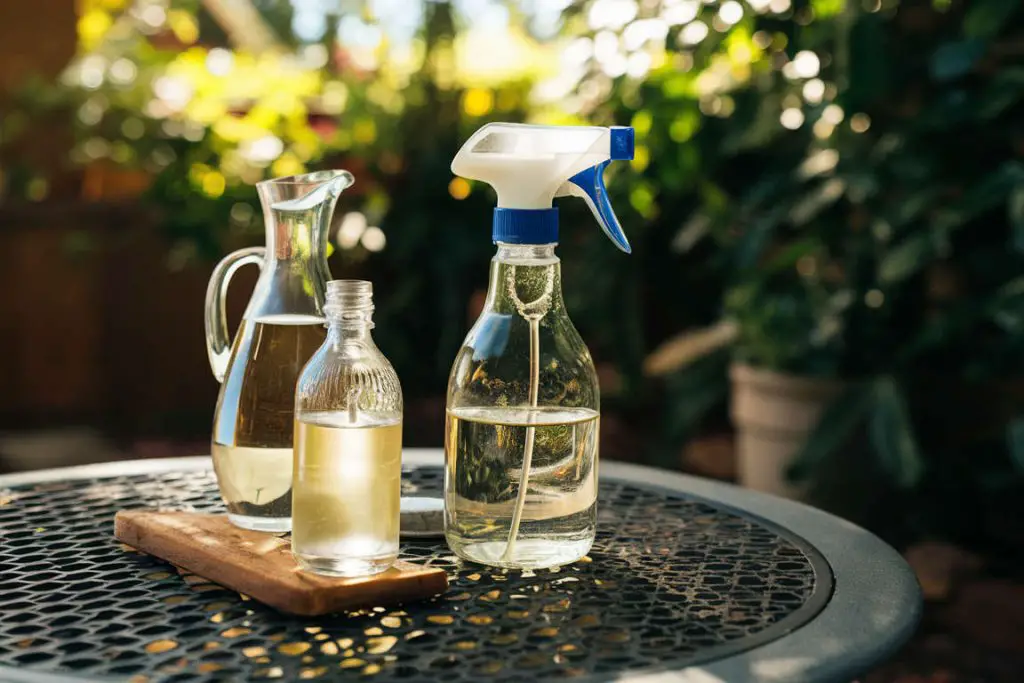
White vinegar, like apple cider vinegar, can be used to create an effective mosquito repellent. Its strong scent helps mask human odors that attract mosquitoes.
Mix equal parts white vinegar and water in a spray bottle. Add 15-20 drops of citronella or eucalyptus essential oil per cup of liquid. Shake well before each use and apply to exposed skin and clothing.
White vinegar has natural disinfectant properties and helps the essential oils adhere to the skin. The combination of vinegar and mosquito-repelling essential oils creates a barrier that most mosquitoes won’t want to cross.
6. Lemon Juice

Lemon juice is a natural mosquito repellent that’s easy to make and smells great. The citrus scent is unpleasant to mosquitoes but refreshing for humans.
Squeeze the juice from three fresh lemons and mix with 1/2 cup of water. Bring this mixture to a boil, then remove from heat and let it steep for an hour. Once cooled, strain the liquid and apply to your skin.
The citrus oils in lemon juice repel mosquitoes effectively. This method also allows you to apply the repellent without the strong smell of fresh lemon juice, making it more pleasant to use.
7. Citronella Candles

Citronella candles offer a pleasant and effective way to repel mosquitoes from outdoor spaces. These candles combine the mosquito-repelling properties of citronella oil with the ambient lighting of candles.
To make your own citronella candles, melt soy wax in a double boiler. Once melted, add citronella essential oil (about 30 drops per 8 ounces of wax). Pour the mixture into heat-safe containers with wicks and let them cool and solidify.
Place these homemade candles around your outdoor seating areas. The smoke and scent released as they burn create a barrier that mosquitoes tend to avoid. For best results, use multiple candles to create a perimeter around your outdoor living space.
Citronella candles not only repel mosquitoes but also add a warm, inviting ambiance to your outdoor gatherings. The soft light and pleasant aroma can enhance your outdoor experience while keeping pesky insects at bay.
Remember to keep candles away from flammable materials and never leave them unattended. Extinguish them properly when you’re done to ensure safety.
Most Effective Homemade Mosquito Repellent Plants
In addition to homemade sprays and lotions, certain plants can help keep mosquitoes away from your outdoor spaces. Here are six of the most effective mosquito-repelling plants:
1. Citronella
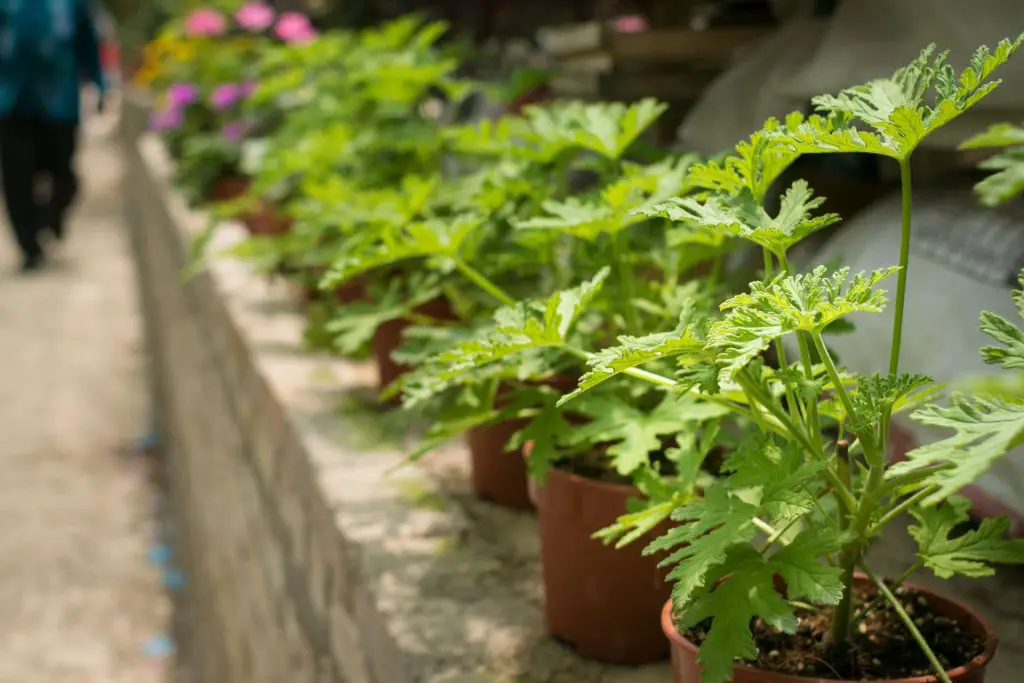
Citronella plants, also known as mosquito plants or scented geraniums, are a popular choice for natural mosquito control. These plants contain citronella oil, which gives off a strong scent that masks the human odors mosquitoes are attracted to.
Plant citronella in pots or garden beds around your patio, deck, or other outdoor living areas. For the best effect, place them near seating areas or entry points to your home. Crushing a few leaves and rubbing them on your skin can provide additional protection.
Citronella plants not only repel mosquitoes but also add a tropical flair to your garden with their attractive, lacy foliage. They’re easy to grow and maintain, making them a practical choice for most gardeners.
2. Lemongrass (Citronella Grass)
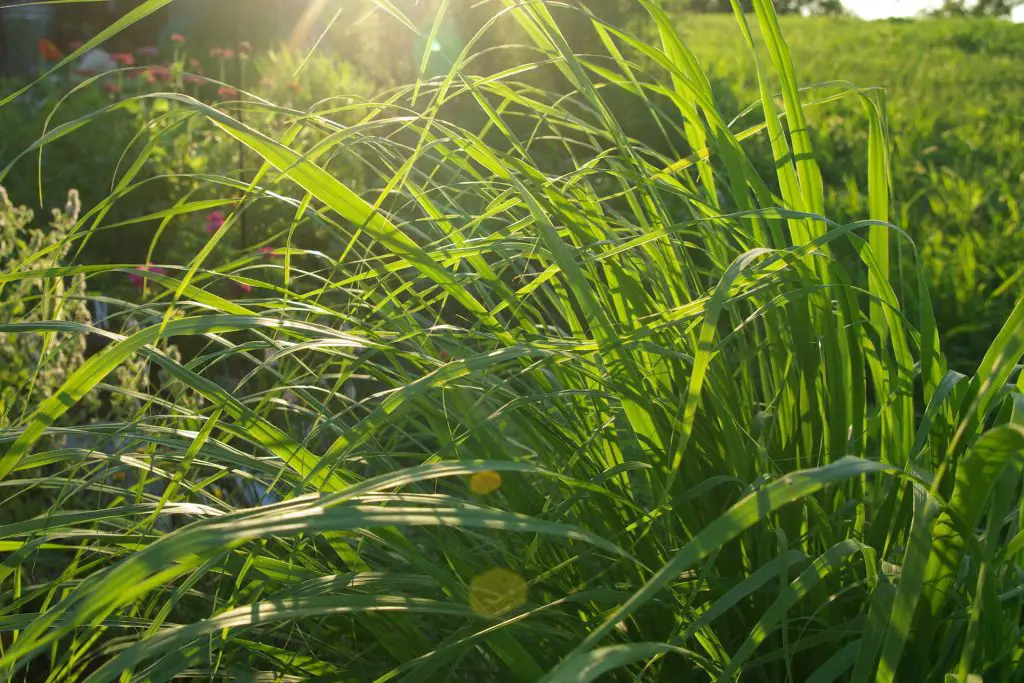
Lemongrass, also called citronella grass, is the source of citronella oil. It has a strong, citrusy scent that mosquitoes find unpleasant. This tall, grassy plant is easy to grow and maintain in most climates.
Grow lemongrass in large containers or directly in your garden. Place these plants around the perimeter of your outdoor living spaces for maximum effect. You can also use fresh lemongrass leaves to make a DIY mosquito repellent spray.
Lemongrass is not only effective at repelling mosquitoes but also adds a lovely, tropical aesthetic to your garden. As a bonus, the leaves can be used in cooking, particularly in Asian cuisine.
3. Lavender
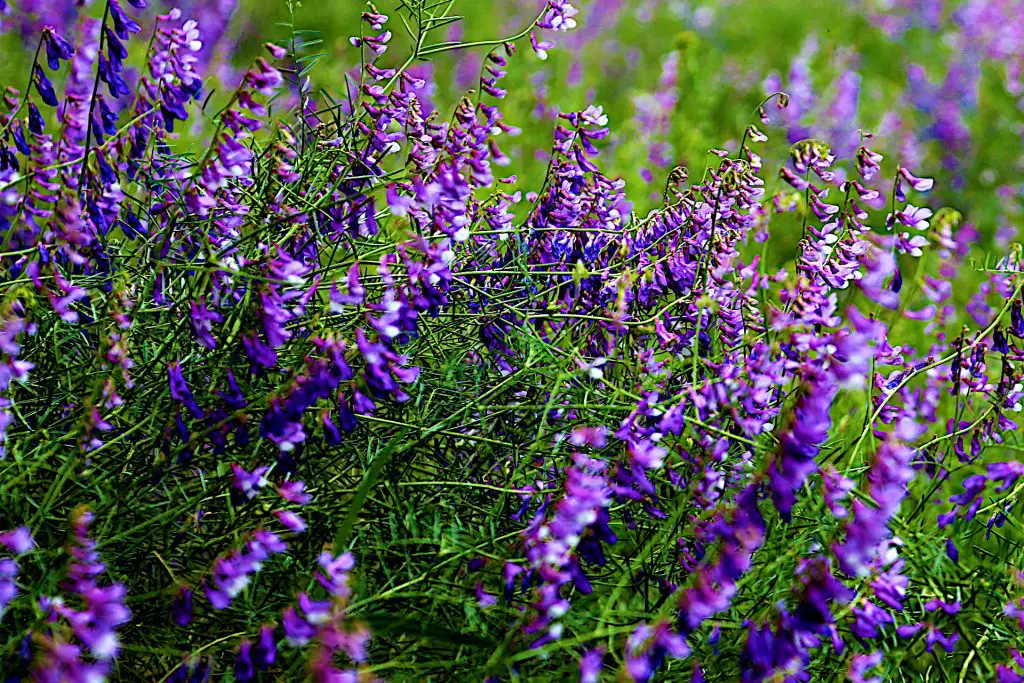
Lavender is known for its soothing fragrance, but mosquitoes find this scent repulsive. This makes lavender an excellent choice for a mosquito-repelling plant that also enhances your garden’s beauty and aroma.
Plant lavender in sunny areas of your garden or in pots on your patio. The strong scent will help keep mosquitoes away from nearby areas. You can also dry lavender and place it in sachets around your outdoor living spaces.
Lavender’s purple flowers are visually appealing and attract beneficial pollinators like bees and butterflies. The plant is drought-resistant and low-maintenance, making it a practical choice for many gardeners.
4. Catnip (Catmint)
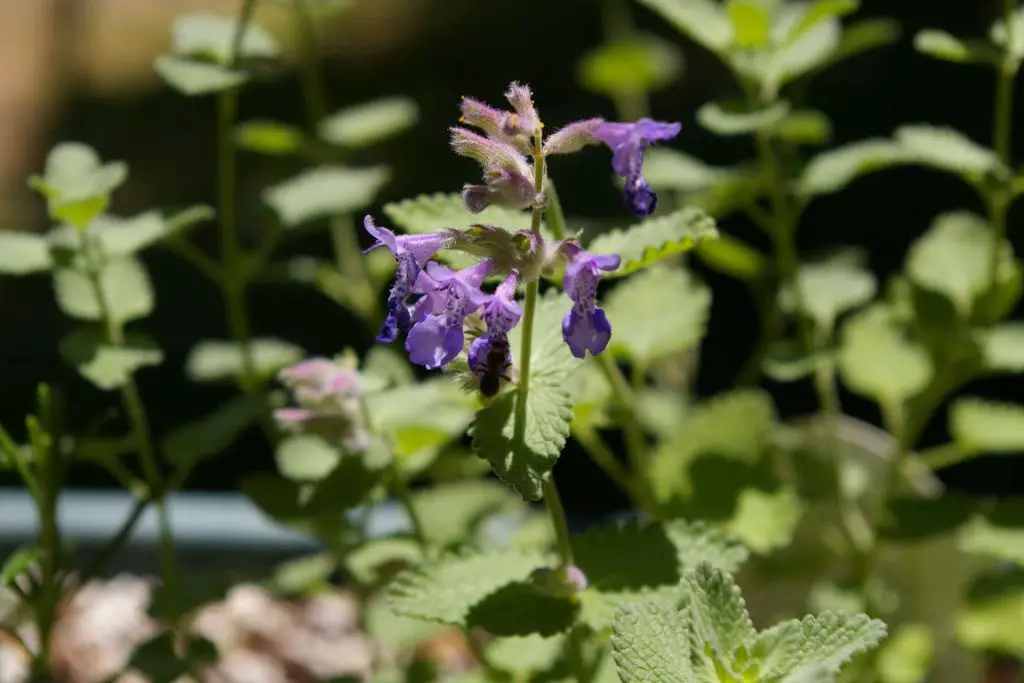
Catnip, a member of the mint family, contains nepetalactone, a compound that’s highly effective at repelling mosquitoes. Some studies suggest it may be even more effective than DEET.
Grow catnip in containers to control its spread, as it can be quite aggressive in garden beds. Place these containers around your outdoor seating areas or near entry points to your home. You can also crush the leaves and rub them on your skin for added protection.
While catnip is excellent for repelling mosquitoes, be aware that it will attract cats. If you have feline visitors to your garden, you might find your catnip plants getting a lot of attention!
5. Basil
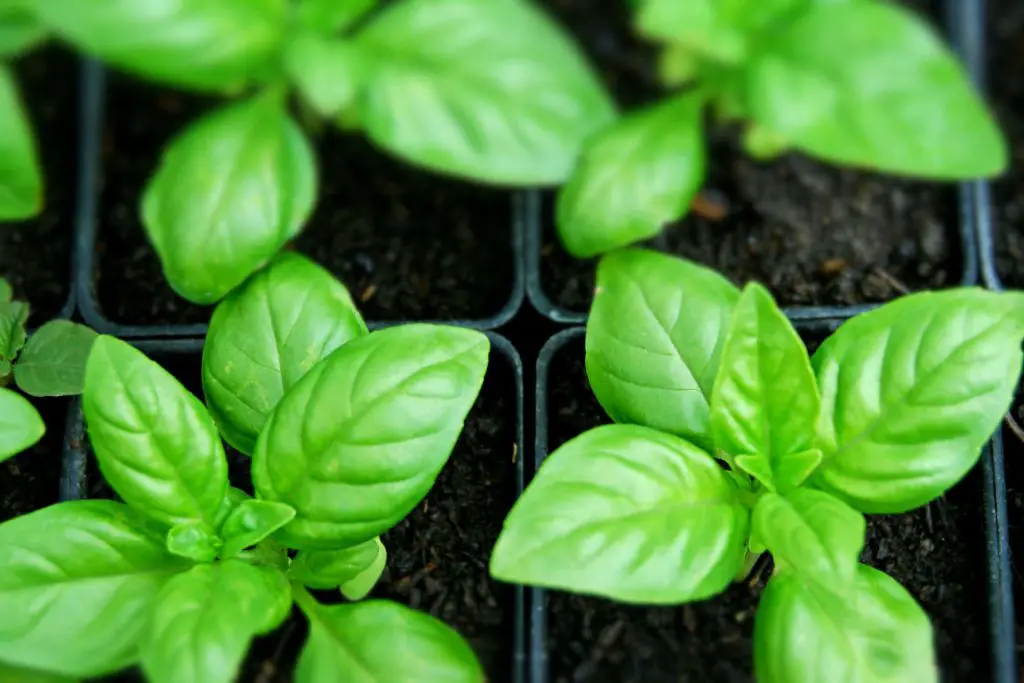
Basil is not only a delicious herb but also an effective mosquito repellent. Its strong scent is unpleasant to mosquitoes but adds a lovely aroma to your garden.
Grow basil in pots near your outdoor seating areas or in your herb garden. For added protection, crush a few leaves and rub them on your skin. You can also make a basil-infused water spray to apply to your skin or around your outdoor areas.
Basil comes in many varieties, each with its own unique scent profile. Try different types like sweet basil, lemon basil, or Thai basil to find the one you prefer. As a bonus, you’ll always have fresh basil on hand for cooking!
6. Marigolds
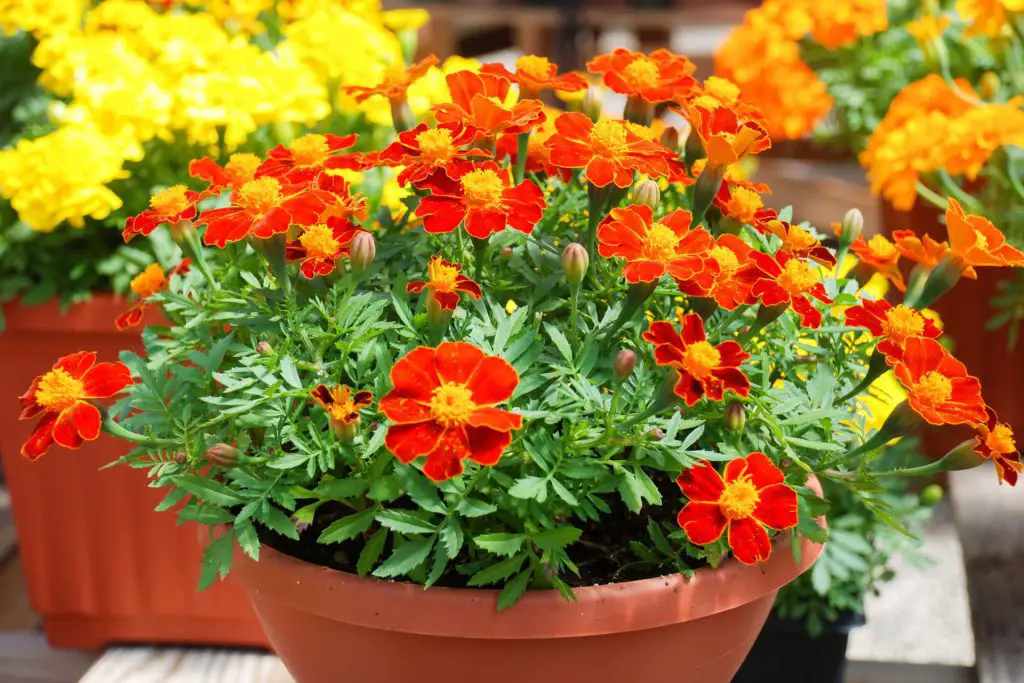
Marigolds are bright, cheerful flowers that also happen to be excellent at repelling mosquitoes. They contain pyrethrum, a compound used in many insect repellents.
Plant marigolds in flower beds around your outdoor living areas or in pots on your patio or deck. Their bright orange and yellow flowers will add a pop of color to your garden while helping to keep mosquitoes at bay.
Marigolds are easy to grow and maintain, making them a great choice for both experienced gardeners and beginners. They also attract beneficial insects like ladybugs and parasitic wasps, which can help control other garden pests.
Combining Homemade Solutions and Plants
For maximum effectiveness, consider using a combination of homemade repellents and mosquito-repelling plants. This integrated approach can provide comprehensive protection against mosquitoes.
Integrated Approach
Using both homemade repellents and plants creates multiple layers of protection against mosquitoes. For example, you might apply a coconut oil and peppermint mixture to your skin while sitting near potted citronella and basil plants on your patio.
This multi-pronged strategy makes your outdoor space less attractive to mosquitoes. The repellent on your skin provides personal protection, while the plants create a broader mosquito-free zone.
Strategic Placement
To get the most out of your mosquito-repelling plants, place them strategically around your outdoor living areas. Surround patios, decks, and seating areas with a variety of repellent plants like marigolds, lemongrass, and lavender.
Create a “mosquito barrier” by planting these repellent species in containers or garden beds around the perimeter of your outdoor spaces. This can help reduce the number of mosquitoes entering the area.
Routine Application
For optimal protection, apply homemade repellents regularly, especially during peak mosquito activity times like dawn and dusk. Reapply after swimming or excessive sweating.
Before heading outdoors in the evening, apply a lemon juice or apple cider vinegar mixture to exposed skin. You can also keep a spray bottle of witch hazel and essential oil blend handy for quick reapplication.
Remember that natural repellents may need to be applied more frequently than commercial products. However, they offer the advantage of being gentler on your skin and the environment.
Keeping Mosquitos at Bay
Homemade mosquito repellents and repellent plants offer effective, natural alternatives to commercial products. By combining these methods, you can create a mosquito-free environment that’s safe for your family and pets.
Experiment with different repellent recipes and plant combinations to find what works best in your area. Some mosquito species may be more repelled by certain scents than others, so don’t be afraid to try various options.
Remember, while these natural methods are effective, they’re not foolproof. In areas with high mosquito populations or during peak seasons, you may need to combine these natural methods with other mosquito control strategies for best results.
By implementing these natural solutions, you can enjoy your outdoor spaces with fewer mosquito interruptions. Not only will you be protecting yourself from bites and potential diseases, but you’ll also be creating a more pleasant, fragrant, and eco-friendly environment.
So, why not give these natural mosquito repellents a try? Your outdoor experiences might just become a lot more enjoyable – and a lot less itchy!
